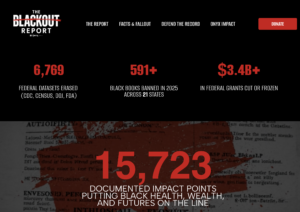The difference between Lori Lightfoot’s political position in the 2019 mayor’s race and now couldn’t be starker.
Buoyed by a corruption scandal involving powerful Ald. Edward Burke, Lightfoot won all 50 wards in a 2019 runoff election against Cook County Board President Toni Preckwinkle, defeating the powerful Democratic Party chairwoman as badly as Mayor Richard M. Daley used to beat political has-beens and nobodies, and making history as the first Black female and first openly gay Chicago mayor.
Advertisement
This time around, however, Lightfoot faces the distinct possibility of missing a runoff entirely, a potential embarrassment unlike any suffered by a sitting mayor seeking reelection since Jane Byrne — the first and only other female mayor of Chicago — lost the 1983 Democratic primary to Harold Washington.
Lightfoot’s transformation from breakout ballot-box star to a mayor fighting for her political life largely centers on three key issues: a dramatic spike in crime during the pandemic, an astonishing array of conflicts with the city’s political and civic communities, and the hellscape of challenges that came with the pandemic and civil unrest.
Advertisement
University of Illinois at Chicago professor emeritus Chris Mooney said Lightfoot has faced enormous problems outside her control and lacks a clear political base. Unlike Paul Vallas, who is the only white contender in the nine-person race, or Jesus “Chuy” Garcia, who is the only Latino, she had to compete for votes with six Black candidates, including some who have been more deeply involved in South and West side communities.
Crime has been a key issue confronting Lightfoot, as some residents went from seeing police reform as a key priority after the Minneapolis police murder of George Floyd to being more concerned about growing violence.
“Everyone’s whiplashed on this. The George Floyd (unrest), defund the police — (then) all of a sudden there’s a couple carjackings and people are like, ‘Bring in the white guy,’” Mooney said. ‘This is a very difficult time and difficult to navigate what do we do about police reform. It would be difficult for anybody, and she hasn’t shown the magic touch to figure out.”
Mooney also said Lightfoot has hurt herself by being “gratuitously pugnacious.”
“We like our Daleys and our Rahms. We complain about them but we say you’ve got to be tough to run the city of Chicago,” Mooney said. “She’s got that but almost in a gratuitous way. She picks fights for reasons unknown to most people.”
Veteran political consultant Delmarie Cobb noted Lightfoot’s overly defensive approach to criticism, particularly around public safety, where she often scolded white audiences about how they were experiencing crime for the first time.
Lightfoot should have focused more on explaining the issues, Cobb said, rather than dismissing as “haters” those who have attacked her over crime.
“She’s not taken that tack,” Cobb said. “Instead, it’s, ‘I’m going to force-feed you into acknowledging that I’ve done a good job.’”
Advertisement
On a more fundamental level, Cobb said, Lightfoot hasn’t done enough to make herself “into a likable person.”
“She took a page from Barack Obama’s book where he said I’m a blank slate, people project onto me what they want. That’s what people did in 2019. They knew everyone else. They figured they were part of the same machine,” Cobb said. “‘Let’s go with someone else. Let’s bring in the light.’ She was supposed to be the light. She did a better job disguising who she is in 2019 than she did in 2023.”
Lightfoot campaigned for mayor in 2019 by arguing crime was too high and she wanted to make Chicago the “safest big city in the country.”
Homicides, mostly from gun violence, spiked dramatically in 2020 and 2021 from 500 murders in 2019 to 776 and 804 in the next two years, respectively. Shootings and carjackings also increased dramatically.
Lightfoot has blamed rising crime on a mix of factors including a lenient court system and the pandemic. She also says her administration deserves credit for a 20% drop in shootings and 14% drop in homicides in 2022 compared with 2021.
Experts question whether a mayor’s policies can affect crime rates, which are influenced by broader societal factors. But Lightfoot’s opponents say the city needs new leadership to undo both the reality of crime and the perception that the city is unsafe, and to continue investing in more police and social programs.
Advertisement
Vallas, who is endorsed by the Chicago Fraternal Order of Police, has staunchly stuck to this message, one that is received enthusiastically in more conservative communities on the Southwest and Northwest sides.
“Public safety is a human right. The community is under siege,” Vallas told a packed crowd last month at Danny’s Pizza in Garfield Ridge, after lamenting what Lightfoot has “done to our police department.”
On the campaign trail, Lightfoot has struggled with how to address the issue.
“I know for many of you, you’re feeling a touch of violence, maybe for the very first time in your lives in Chicago,” she recently told a North Side crowd. Lightfoot frequently invokes the sentiment, but it has struck some residents as out of touch or insensitive.
Lightfoot has also privately questioned the severity of the recent crime spikes. In a text exchange with a downtown alderman previously reported by the Tribune, Lightfoot said she shared his concern about crime but downplayed how bad it has been.
“I will push back and say that it was not that long ago that River North was not a nice safe neighborhood and that is recent enough that I remember it,” Lightfoot added.
Advertisement
It’s been an issue she has repeatedly tried to blunt even as critics and rivals use it to go after her. Her first TV ad featured two young men playing video games on a couch and arguing over crime, one pointing out: “You know, we didn’t get into this mess overnight.”
A later ad took a defensive tone.
“You wouldn’t know it by watching the news or listening to the haters,” says the narrator as he walks down a Chicago street, adding, “but on crime, Lightfoot has a plan.”
At the same time, the left flank of the city’s political class has hit Lightfoot on what they say is a string of broken promises from 2019, when she ran as a progressive. That includes abandoning commitments to a real estate transfer tax increase on high-price properties to fund programs for homeless people, an elected school board for Chicago Public Schools and a fully staffed Department of Environment.
The mayor has countered that the actual proposals put forth by supporters of those issues are flawed, arguing the state legislation mandating an elected school board beginning with the November 2024 election created a body that is too large, with 21 members, and doesn’t account for financial entanglement between the city and CPS.
Cook County Commissioner Brandon Johnson scored points among progressive audiences on the campaign trail by noting Lightfoot’s resistance to such proposals. When he turned in his nominating petitions in November, he summed up his motivation for running against her: “The mayor of Chicago has been an incredible disappointment to me. She has broken nearly every single promise.”
Advertisement
Lightfoot also drew criticism after mishandling the case of Anjanette Young, a social worker who was forced to stand naked during a botched raid by Chicago police. The mayor’s lawyers tried to withhold video of officers ignoring her as she pleaded with them to let her put on clothes. Lightfoot falsely said she hadn’t been aware of the case but later apologized and acknowledged she had gotten a detailed email about it, explaining that she simply forgot the exchange and wasn’t lying.
At a 2019 campaign event, journalists Ben Joravsky and Mick Dumke asked Lightfoot if she could work with the Chicago Teachers Union despite their support for Preckwinkle, or if she would be “Rahm-like” in seeking vengeance.
“You harm me mortally by comparing me to Rahm,” Lightfoot quipped. “I’m not going to lead with my middle finger.”
But over the past four years, Lightfoot’s personal approval took a nose-dive in part due to a series of conflicts and her defensive response to even mild criticism. Sometimes Lightfoot alienated friends and allies who agreed with her on issues but disagreed with her scorched-earth approach to those who question her decisions.
Defending police Superintendent David Brown, Lightfoot said his detractors don’t know anything about public safety, even though the chorus of critics included some of her former top advisers on crime and policing. Amid a high suicide rate for Chicago cops and concerns raised by officers that they were being overworked as the department canceled their days off, Lightfoot said they have an “incredible amount of time off.”
Throughout her term, Lightfoot blamed high-profile crime incidents and a spike in homicides on Cook County judges and State’s Attorney Kim Foxx. But the mayor sometimes acted as a political chameleon and alienated residents with contradictory statements throughout the years, including both praising Foxx as “our great state’s attorney” before Black audiences and criticizing her in front of white ones.
Advertisement
Garcia has attempted to pitch himself as the anti-Lightfoot when it comes to leadership style and personality. He frequently touted himself as a uniter on the campaign trail.
“I endorsed (Lightfoot), but when she failed, instead of doing what a leader does — taking responsibility and solving problems — she dug in,” Garcia said. “Have you seen the finger-pointing between the mayor and the state’s attorney? The mayor and the courts? The mayor and the governor? Chicago knows me. I bring people together. I build constructive relationships.”
Her relationship with aldermen started poorly and worsened. Over the past four years, Lightfoot publicly and privately bad-mouthed her coequal branch of government on a regular basis. While negotiating her second budget, Lightfoot told aldermen who did not plan to vote for her spending plan, “Don’t come to me for s—.”
In text messages, Lightfoot referred to one alderman as a “dumb, dumb person of color” being led astray by Ald. Burke, who is white. Other examples of her past epithets toward aldermen include remarks that Jason Ervin was “full of crap,” Brendan Reilly was “bush league” and Byron Sigcho-Lopez was a “jackass.”
During one City Council meeting, when she was upset with aldermen for delaying a vote on Celia Meza’s appointment as corporation counsel, Lightfoot stormed off the dais to confront Ald. Jeanette Taylor, leading to an ugly encounter where they screamed at one another and pointed their fingers in each other’s faces.
Some of the aldermen Lightfoot has had scrapes with are former allies. In a remarkable break, Lightfoot’s hand-picked budget chair, Pat Dowell, endorsed Johnson for mayor. One of Lightfoot’s committee chairs, Roderick Sawyer, ran against her. At least three committee chairs and the council’s president pro tempore publicly supported other candidates.
Advertisement
Ald. Susan Sadlowski Garza went from exchanging “I love yous” with the mayor via text message to publicly declaring she would “absolutely not” support her for reelection. “I have never met anybody who has managed to piss off every single person they come in contact with — police, fire, teachers, aldermen, businesses, manufacturing, and that’s it,” Garza told the Reader’s Joravsky.
Lightfoot’s struggled mightily in Springfield too. Her relationship with Illinois Gov. J.B. Pritzker was filled with tension over the city’s finances and COVID-19. One day, Lightfoot texted Pritzker to complain about his staff, even after he told her, “Texting probably not the best way to communicate.”
She also fought with Senate President Don Harmon. The conflicts had real-world consequences for her administration when state legislators approved the elected school board bill over her objections after she was unable to build a coalition to stop it.
Lightfoot’s feuds extended beyond the world of politics and into the business community. When McDonald’s CEO Chris Kempczinski said his company would remain in Chicago but had concerns about crime, Lightfoot said he should “educate himself” before speaking. She accused Uber of “paying off Black ministers” to oppose a congestion tax. When the Bears announced they were pursuing a possible move to Arlington Heights, Lightfoot mockingly tweeted that they should “focus on putting a winning team on the field, beating the Packers finally and being relevant past October.”
At times, Lightfoot has also been accused of punching down. In January 2021, Lightfoot sent staff an email where she wrote, “I need office time everyday!” sixteen times and repeated several other sentences in a message some compared with Jack Nicholson’s descent into madness in the film “The Shining.” A former Park District lawyer filed a lawsuit claiming she mocked his legal training and that she boasted she had “the biggest d— in Chicago.” (Lightfoot has denied that.)
During the early days of the pandemic, Lightfoot marched up to a group of young Black men in a playground on the West Side and told them to go home. “Let’s move on, move on, move on,” Lightfoot said, flanked by Brown, staff and her police security detail. “You want to take this virus back to your house, get your mama sick?” As she walked away, one of the youths responded, “You go home.” The mayor’s message was well-intentioned but they were kids and the image of the city’s most powerful woman scolding young folks while surrounded by police officers didn’t sit right with some people.
Advertisement
Lightfoot has also repeatedly interjected her race into controversies, drawing criticism even from Black supporters. When the chief of detectives disagreed with Lightfoot on a charging decision, she publicly suggested he cares more about white residents in Beverly than Black West Siders. In 2021, Lightfoot famously declared she would only speak with non-white journalists in interviews for her two-year anniversary, a move that generated criticism from white people who claimed discrimination and from journalists of color who said she was using them as political pawns.
During the 2020 presidential election, Lightfoot said she wouldn’t consider endorsing Democratic candidates Bernie Sanders and Elizabeth Warren, who she said didn’t talk to her during the 2019 teachers strike. “They were very supportive of the Chicago Teachers Union strike but didn’t feel it was necessary to talk to the new black LGBTQ mayor,” Lightfoot said.
Through it all, Lightfoot has resisted pleas from friends and allies to temper her approach.
“Look, I’m 60 years old, I’m not going to change who I am,” she repeatedly told the press, a statement supporters and critics alike will likely keep in mind as they cast their votes.
gpratt @chicagotribune.com
ayin@chicagotribune.com







